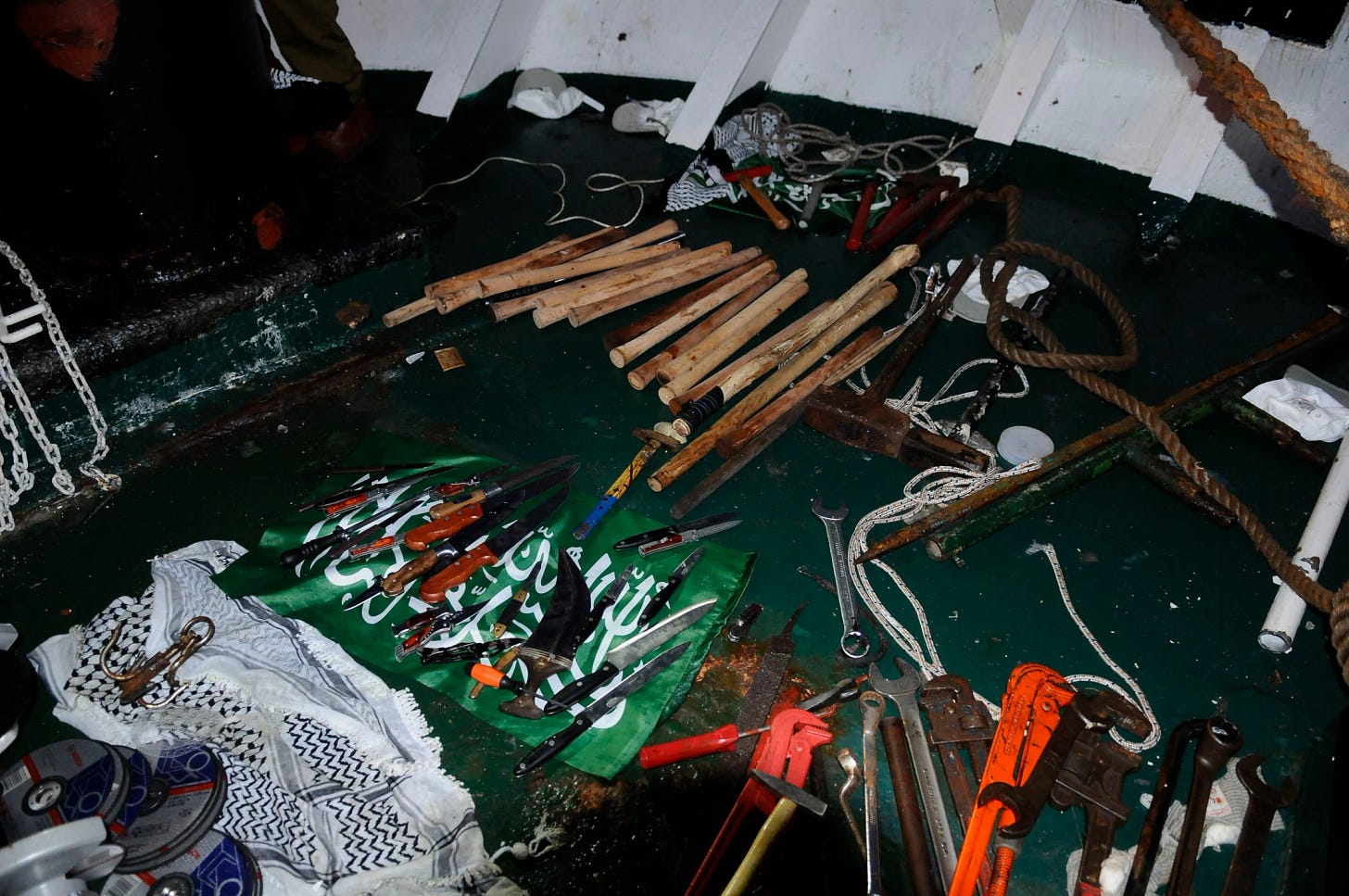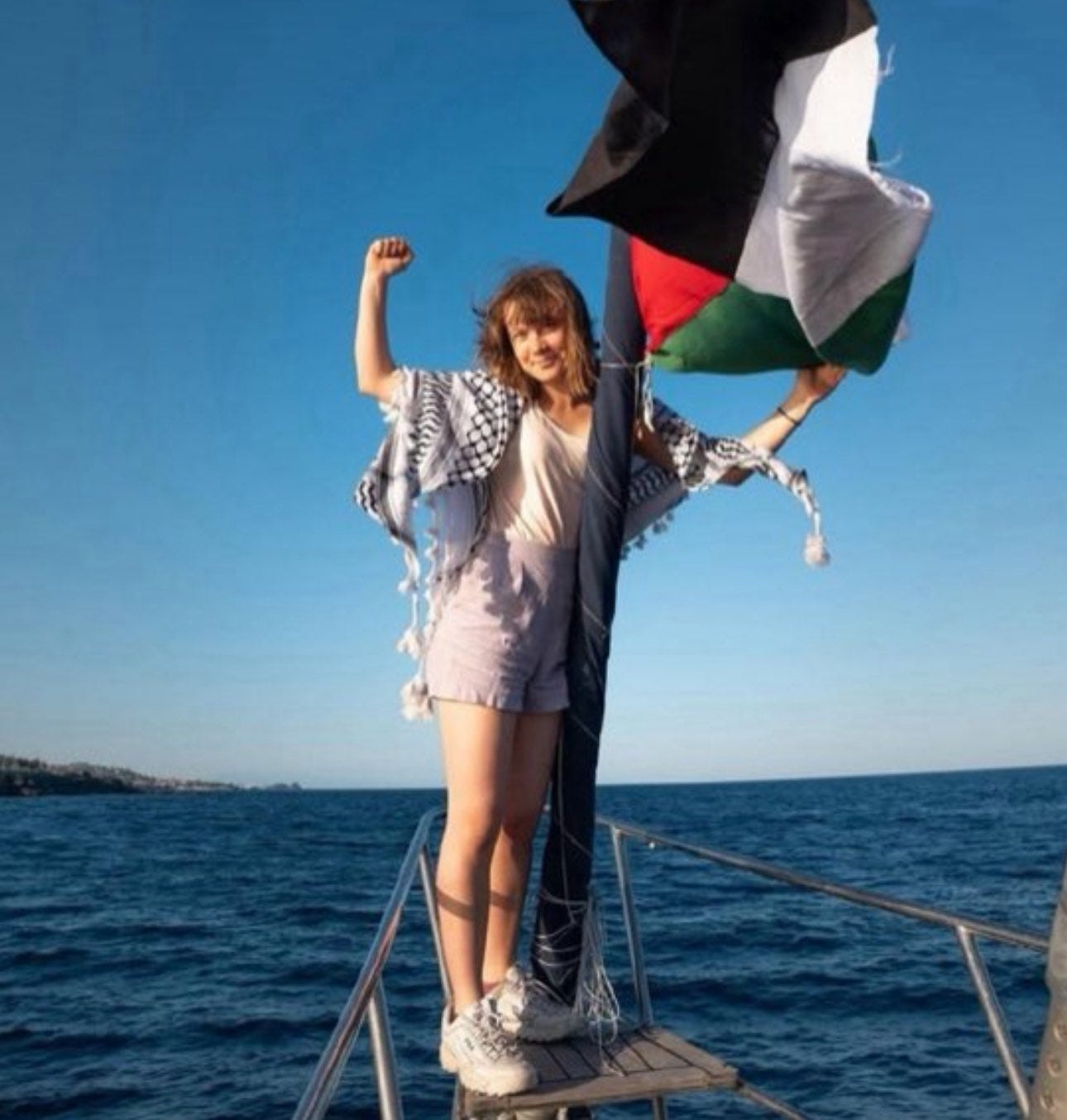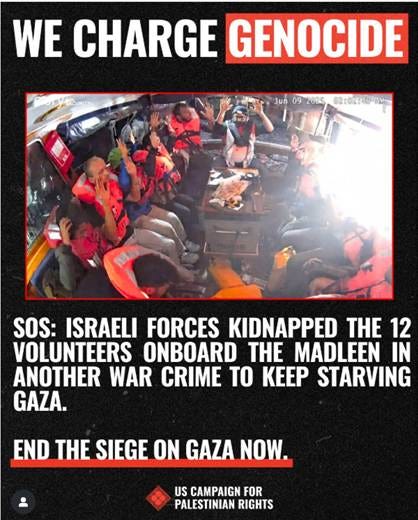Humanitarian Smokescreen: Deep Dive into Gaza Flotilla Movement's Terror Links
A closer look at how the Gaza flotilla movement, originally humanitarian, has become a platform for political statements and controversial alliances.
Late Sunday night, the Israel Defense Forces intercepted the "Madleen" vessel attempting to break Israel's Gaza blockade. The vessel had been generating headlines for days due to the presence of prominent activist Greta Thunberg, who has been the subject of controversy for alleged pro-Hamas comments. All passengers were unharmed, but the mission's true motives remain under scrutiny.
International reactions to the flotillas have been divided, with Hamas and pro-Palestinian groups framing them as legitimate “resistance” efforts, while others view them as provocations exploiting humanitarianism for political ends. Additionally, the flotilla movement has faced criticism for its alleged ties to terrorist organizations.
The Origins of the Flotilla Movement
The Gaza Freedom Flotilla, initiated in 2008, poses as a humanitarian initiative designed to deliver aid to Gaza while challenging Israel’s maritime blockade. However, beneath its façade of aid and international solidarity lies a complex network of ties to extremist and terrorist groups. The Turkish-based humanitarian group İHH, a key organizer, has been accused by multiple intelligence agencies of supporting terrorist organizations like Hamas and Al-Qaeda.
The flotillas, particularly the 2010 Mavi Marmara incident, in which the participants violently attacked IDF forces that were sent to intercept the vessel and prevent it from reaching Gaza, raised questions not only about the legitimacy of their claimed goals but also about the intent behind them.

The Role of İHH and Its Alleged Terror Ties
The Turkish İHH has been a centerpiece of the Gaza flotilla movement. Despite its public image as a humanitarian NGO, numerous intelligence sources have alleged that İHH has ties to radical Islamist networks. A 2006 report from the Danish Institute for International Studies revealed the group’s connections to Al-Qaeda, specifically referencing its role in facilitating the recruitment of militants for the Bosnian and Chechen conflicts.
In the 1990s, İHH was implicated in a plot to bomb Los Angeles International Airport, with several reports linking the group to terrorists in North Africa and Europe. These links to Al-Qaeda were not incidental, as İHH’s support for global jihadist activities was well-documented by former French counter-terrorism officials.
İHH is also a member of the Union of Good, an umbrella organization that has been sanctioned by the U.S. Treasury Department for financing Hamas. Israeli intelligence reports have suggested that İHH has financed Hamas’s military wing and contributed to its naval capabilities, further blurring the lines between humanitarian aid and material support for terrorism.
Participants with Alleged Terror Affiliations
Similarly to 2010 Mavi Marmara, the recent 2025 “Madleen” flotilla also saw the participation of controversial figures like Greta Thunberg, who has been criticized for her allegedly pro-Hamas stance. In addition, Rima Hassan, a French-Palestinian Member of the European Parliament, was also aboard, alongside Omar Faiad, a journalist known for his anti-Israel rhetoric. Also, Yasemin Acar, a German activist with a history of anti-Israel sentiments, and Thiago Avila, who praised Hezbollah's leader Hassan Nasrallah. These individuals, alongside others with well-documented pro-terrorist and antisemitic rhetoric, suggest that the flotilla movement attracts more than just humanitarian activists. Instead, it appears to serve as a platform for individuals with extreme ideological views.

Political Capitalization in the Flotilla Movement
The Gaza flotilla movement has increasingly become a platform for political statements, with several groups using it to advance agendas that extend beyond humanitarian aid. For instance, the U.S.-designated terror organization Samidoun has framed the flotilla as part of a broader resistance against perceived imperialism, with some anti-Israel groups calling the activists "hostages" in a way that diminishes the severity of the Israeli hostage crisis. This rhetoric has been echoed by platforms like USCPR Instagram and PYM Facebook, highlighting the movement’s political dimensions.
In addition, UN Special Rapporteur Francesca Albanese has called for more flotillas to break Israel’s blockade, framing such actions as a legal duty. Her support for such initiatives adds to the perception that these flotillas are not only about providing aid but are also politically motivated.
Similarly, a recent post by the radical group Unity of Fields on X has called for the next flotilla to be “armed to the f**king teeth,” echoing violent anti-Israel rhetoric and highlighting the organization's militant stance, which further raises concerns about its involvement in radical activities and support for groups like Hamas.




